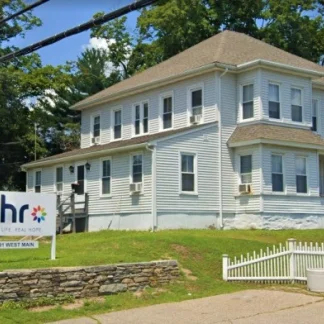Generations Family Health Center
Generations Family Health Center, located in Windham, Connecticut, provides serv...
Community Health Resources – Thomas Murphy Center is a private rehab located in Windham, Connecticut. Community Health Resources – Thomas Murphy Center specializes in the treatment of alcoholism, drug addiction, dual diagnosis, opioid addiction, and substance abuse.
Contact us for more information: (860) 456-1769

Connect with Community Health Resources - Thomas Murphy Center by calling their admissions team directly.
(860) 456-1769 Website Get DirectionsResearch clearly demonstrates that recovery is far more successful and sustainable when loved ones like family members participate in rehab and substance abuse treatment. Genetic factors may be at play when it comes to drug and alcohol addiction, as well as mental health issues. Family dynamics often play a critical role in addiction triggers, and if properly educated, family members can be a strong source of support when it comes to rehabilitation.
Trauma therapy addresses traumatic incidents from a client's past that are likely affecting their present-day experience. Trauma is often one of the primary triggers and potential causes of addiction, and can stem from child sexual abuse, domestic violence, having a parent with a mental illness, losing one or both parents at a young age, teenage or adult sexual assault, or any number of other factors. The purpose of trauma therapy is to allow a patient to process trauma and move through and past it, with the help of trained and compassionate mental health professionals.
Trauma therapy addresses traumatic incidents from a client's past that are likely affecting their present-day experience. Trauma is often one of the primary triggers and potential causes of addiction, and can stem from child sexual abuse, domestic violence, having a parent with a mental illness, losing one or both parents at a young age, teenage or adult sexual assault, or any number of other factors. The purpose of trauma therapy is to allow a patient to process trauma and move through and past it, with the help of trained and compassionate mental health professionals.
Generations Family Health Center, located in Windham, Connecticut, provides serv...
Community Health Resources is a private rehab located in Mansfield Center, Conne...
Natchaug Hospital – Inpatient Services is a private rehab located in Mansfield C...
Root Center for Advanced Recovery – Hartford Dispensary is a private rehab locat...